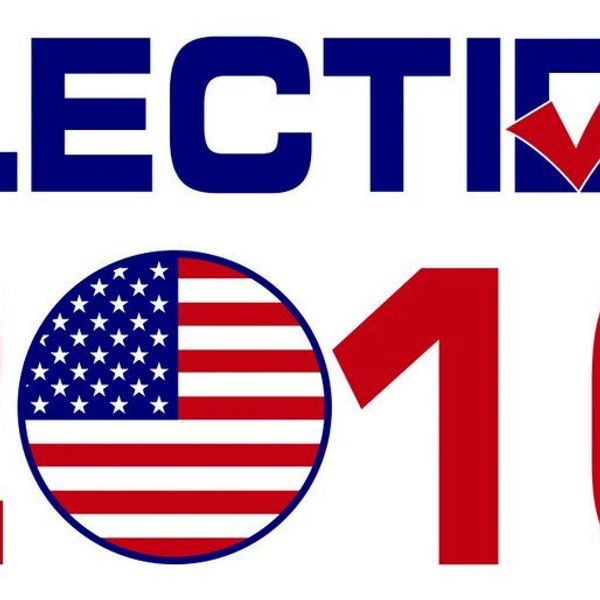This past Monday, on September 12th, the radio program Morning Shift on Chicago’s National Public Radio station, WBEZ, ran a report on what it is like to be Muslim in America, particularly on the day before the broadcast had aired. Sunday was the 15th anniversary of the 9/11 terrorist attacks, in which nearly 3,000 Americans were killed and which spurred America’s global war on terror. The report began with the telling of a sort of protest that occurred in a predominantly Muslim area of Chicago’s southwest suburbs. Marchers waved large American flags, and some held signs with the slogan “America: Love it, live it, or leave it.” And many of them wore t-shirts showing support for the Republican nominee for President, Donald Trump.
Many of my friends at school are not from the United States, and when they talk to me about the election, a few ask me why I’m so worried about the possibility of Trump winning. Obviously he is not the most informed person to run for President, his policy suggestions are often ludicrous at best, but if we have such a strong separation of powers, if Congress can rebuff his actions, then what’s the worry? If this coming January, Donald Trump is handed the keys to the White House, he isn’t handed an all-access pass to US policy. In all likelihood, if Trump is elected, there will be no wall on the southern border funded by Mexico, there will be no ban on Muslims or people from countries dealing with terrorism entering the United States. In the same way many people pointed out, correctly, that Bernie Sanders’s proposals had little chance passing through Congress, so do the proposed policies of Mr. Trump. However, this protest in the southwest suburbs of Chicago shows why a Trump presidency, and even the ongoing Trump candidacy, is cause for worry.
Many who run in policy and academic circles have pointed to parallels between the United Kingdom’s decision to leave the European Union and the possible election of Donald Trump. The “Leave” campaign based its arguments around out of control immigration and an out of touch elite that benefitted from an institution that had little impact on the average citizen. This past June, the “Leave” campaign, in an unexpected result, was victorious. The UK is still currently part of the EU, and there are ranging estimates as to how long it will remain, from two years to ten. And yet, there has been a significant effect on British society just following the vote. In the two weeks following the Brexit vote, there was a 42% increase in hate crimes compared to the same period the previous year. The crimes ranged from insults to truly frightening threats. A Polish family had their shed set on fire and received a note which read “go back to your [expletive] country next time it will be your family”.
While there were many economic and political reasons behind the reasoning of some “Leave” supporters, there can be no doubt that nationalist and anti-immigrant arguments defined a large part of the campaign. What Britain saw immediately after Brexit, and what Muslims living outside Chicago saw this week, are clear indications of what happens when populist, xenophobic causes gain broad support. Those people who once felt uncomfortable expressing their tolerance are given a major political platform to do so, and the result is devastating for the liberal-democratic fabric of societies like those in the United Kingdom and the United States.
There are many other declarations and policy proposals from Donald Trump that worry me besides his stance on immigration. His foreign policy tends to be a mix between isolationism, nuclear proliferation, and trying to start a war with every country somewhat hostile to the United States. His tax plan would mainly benefit the wealthiest Americans while, according to many economists, lead to a growth in the federal deficit. But the impact Trump’s campaign has had on everyday America has been to tell those who fear other cultures, who feel their image of America is slipping away at a faster and faster rate, that they have an ally gunning for the White House that will combat their enemies; the foreigners, the non-Christians, the globalists. Those people who walked through the southwest suburbs waving their huge flags and their slogans, what indication did they have that these Muslims they were yelling at were not living and loving America? In Illinois and the Chicagoland area, the Muslim population has grown significantly in the past four decades as Muslim families have settled, put down roots, accepted American identity. There will always be a debate as to what it means to live and love America. There are those who firmly believe that doing so means being proud of a country with open arms and tolerance towards all, welcoming those who wish to come here and pursue a better future for them and their posterity. And there are those who believe that loving America means sanctifying its culture and values and protecting them from foreigners who seek to change America rather than assimilate. This election is, among many things, a referendum on what kind of country America wants to be. A Trump presidency would have an immense impact on American society and our perception abroad, and that is why it is necessary to avoid nihilism and realize that, while our political system is full of issues and often stagnant, it still matters who runs the show.





















